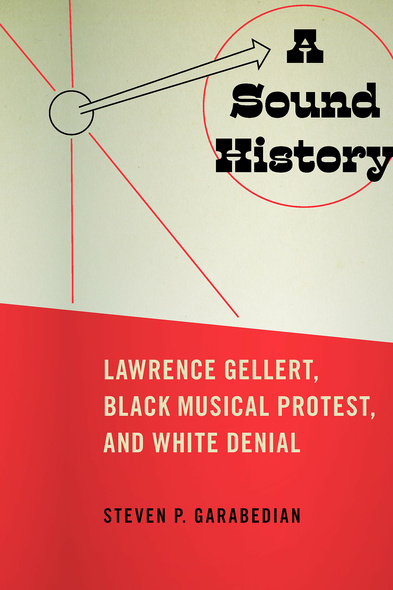Our shopping cart is currently down. To place an order, please contact our distributor, UTP Distribution, directly at utpbooks@utpress.utoronto.ca.

240 pages, 6 x 9
8 b&w illus.
Paperback
Release Date:30 Oct 2020
ISBN:9781625345301
Hardcover
Release Date:30 Oct 2020
ISBN:9781625345295
A Sound History
Lawrence Gellert, Black Musical Protest, and White Denial
SERIES:
American Popular Music
University of Massachusetts Press
Lawrence Gellert has long been a mysterious figure in American folk and blues studies, gaining prominence in the left-wing folk revival of the 1930s for his fieldwork in the U.S. South. A "lean, straggly-haired New Yorker," as Time magazine called him, Gellert was an independent music collector, without formal training, credentials, or affiliation. At a time of institutionalized suppression, he worked to introduce white audiences to a tradition of black musical protest that had been denied and overlooked by prior white collectors.
By the folk and blues revival of the 1960s, however, when his work would again seem apt in the context of the civil rights movement, Gellert and his collection of Negro Songs of Protest were a conspicuous absence. A few leading figures in the revival defamed Gellert as a fraud, dismissing his archive of black vernacular protest as a fabrication—an example of left-wing propaganda and white interference. A Sound History is the story of an individual life, an excavation of African American musical resistance and dominant white historiography, and a cultural history of radical possibility and reversal in the defining middle decades of the U.S. twentieth century.
By the folk and blues revival of the 1960s, however, when his work would again seem apt in the context of the civil rights movement, Gellert and his collection of Negro Songs of Protest were a conspicuous absence. A few leading figures in the revival defamed Gellert as a fraud, dismissing his archive of black vernacular protest as a fabrication—an example of left-wing propaganda and white interference. A Sound History is the story of an individual life, an excavation of African American musical resistance and dominant white historiography, and a cultural history of radical possibility and reversal in the defining middle decades of the U.S. twentieth century.
With this book, Garabedian enriches our understanding of the methods, outlook, and interpretive framework of folklorists of the early twentieth century, and his assessment of the politics and culture of the 1930s is first-rate.'—Stephen Petrus, coauthor of Folk City: New York and the American Folk Music Revival
'Gellert's work has not received the recognition or appreciation it deserves. In his well-researched book, Garabedian does a very good job of highlighting the significance of Gellert's song collecting.'—Robbie Lieberman, author of 'My Song Is My Weapon': People's Songs, American Communism, and the Politics of Culture, 1930–50
'[A]s Steven Garabedian’s book A Sound History proposes, the Gellert story is even far more complicated—and interesting—than it might seem at first glance.'—Reviews in American History
'Garabedian’s A Sound History: Lawrence Gellert, Black Musical Protest, and White Denial helps to unravel some of those mysteries by carefully tracking Gellert’s life, work, and message without bias . . . Today, at a time of high racial tensions and a need for greater cultural sensitivity, A Sound History demonstrates not only how cross-cultural documentation might work best, but also how we may need to reassess the contributions of highly positioned academicians and collectors in our fields.'—Journal of American Folklore
STEVEN P. GARABEDIAN is assistant professor of history at Marist College.




